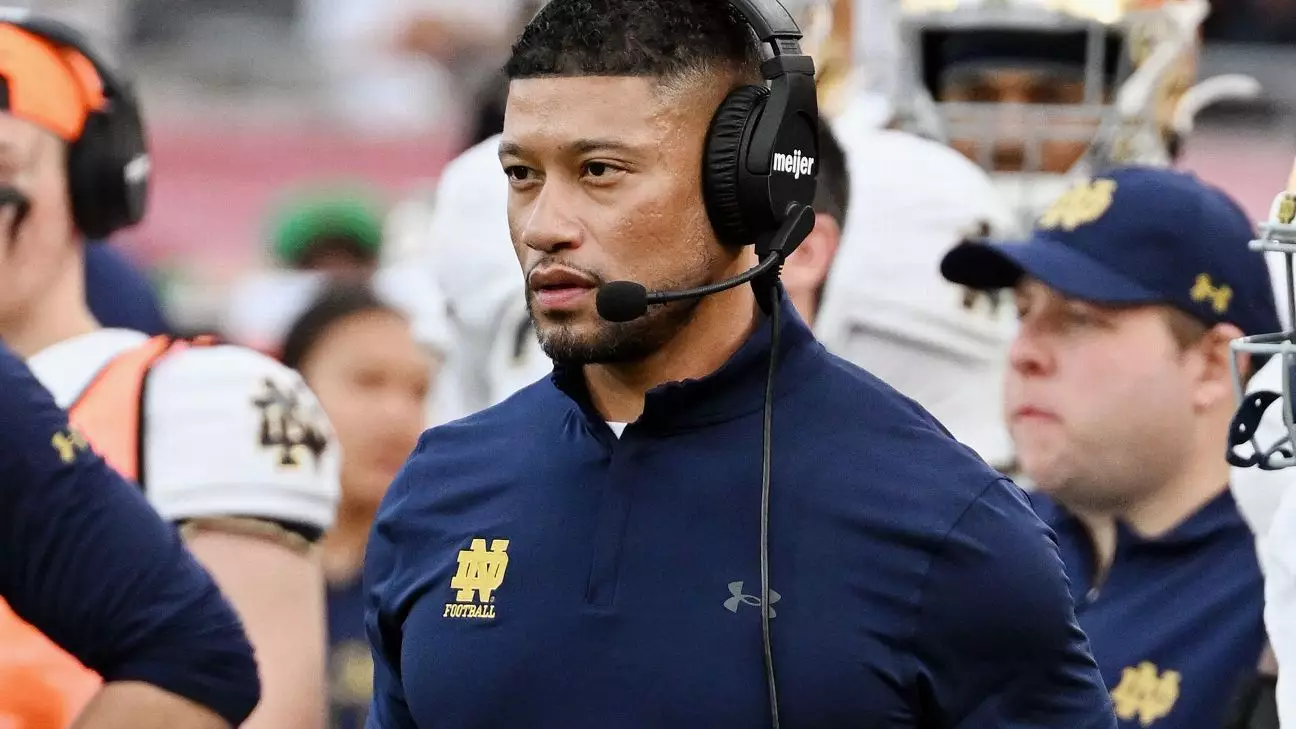The upcoming College Football Playoff Semifinal at the Capital One Orange Bowl is not just a battle for a coveted spot in the national championship game; it also represents a poignant moment in the history of college football. With both Notre Dame’s Marcus Freeman and Penn State’s James Franklin at the helm, the winner of this matchup will make history as the first Black head coach to lead a team to the nationally recognized championship game. This landmark occasion has reignited discussions surrounding diversity, representation, and the impact such milestones have on the future of coaching in college football.
Franklin, recalling his time as an offensive coordinator during the groundbreaking Super Bowl XLI in 2007 featuring Tony Dungy and Lovie Smith—both Black head coaches—reminded attendees of the significance of representation in sports. As he looked back, he underscored how that Super Bowl served as inspiration for coaches like himself who were navigating the complexities of the profession during that period. “It felt monumental to see those coaches excel on such a grand stage,” said Franklin in a recent press conference. His experiences at Kansas State, under the leadership of another Black head coach, Ron Prince, formed his understanding of how leadership diversity can shape the perceptions and ambitions of young, aspiring coaches.
In terms of actual numbers, Franklin noted a modest increase in the number of Black head coaches in college football—from six to sixteen in the FBS programs. While this growth may not seem substantial, Franklin argued that every addition is a step forward, emphasizing, “Opportunities are what we strive for, and they ultimately pave the way for future generations.” His reflections call attention to the slow, but positive change that these milestones can inspire.
Freeman’s Dual Identity and Responsibility
Freeman, in his response, poignantly combined personal identity and professional duty. Identifying as half-Korean and reflecting on his diverse background, he acknowledged the weight of being a role model for young coaches and players. “I am acutely aware that my journey symbolizes possibilities for others who look like me,” Freeman noted, emphasizing that this recognition doesn’t diminish the team’s collective goals. He stressed the importance of striving for team success and overcoming personal accolades, presenting himself not just as a leader, but as a beacon of hope for others.
Freeman’s awareness of his role extends beyond simple representation; it entails a commitment to creating meaningful change. He articulated a proactive approach to inspiring young coaches. “True impact requires action beyond mere representation,” Freeman asserted, indicating a desire to focus on initiatives that would facilitate the growth of aspiring coaches in the profession. His commitment reaffirms a broader message in sports: effective leadership involves advocating for others and fostering an environment of inclusivity and opportunity.
As both coaches prepare to compete, Franklin expressed a deep respect for Freeman and the tradition of excellence at Notre Dame. “I’m honored to represent Penn State and compete against such a storied program,” he stated, showing that, while the competition will be fierce, there is an underlying camaraderie rooted in shared experiences and mutual aspirations. This respect not only reflects the competitive nature of college football but also the collective responsibility that these leaders carry as representatives within the sport.
As the two Black head coaches prepare to square off in the Orange Bowl, the significance of their positions cannot be overstated. They are not just striving for victory on the field; they are also serving as catalysts for change and beacons of hope for future generations. Their success will illuminate paths for many young coaches and athletes, making this game much more than just a semifinal. This class of leaders demonstrates that the synergy of personal achievement and shared advocacy can reshape the narrative of who can lead in the world of college athletics.
Ultimately, the outcome of this historic game will resonate far beyond the scoreboard, potentially inspiring a new era of leadership and opportunity in college football.


Leave a Reply